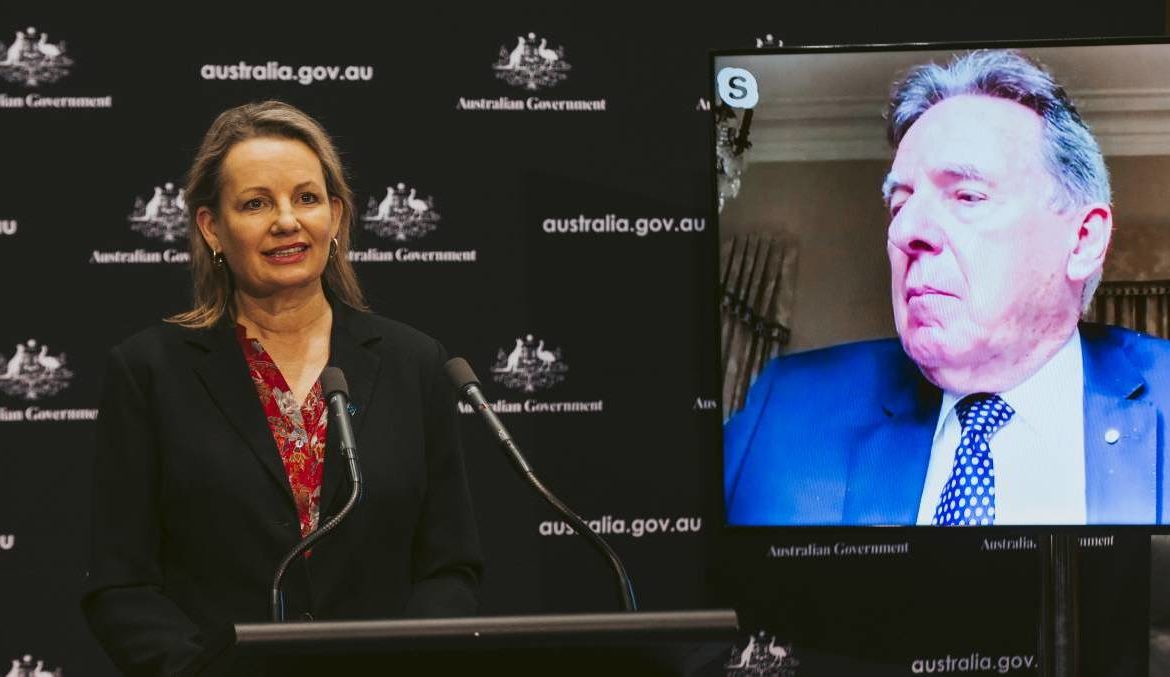news, federal-politics, Environment, Sussan Ley, Graeme Samuel
A review of Australia’s environment laws has warned an independent watchdog was needed as the federal government moved ahead with giving decision-making powers to state and territory governments over developments. The government has previously rejected the recommendation, first offered by the reviewer Professor Graeme Samuel in an interim report, and reiterated in his final report released on Thursday. Professor Samuel found the laws, first passed 20 years ago, had failed to protect Australia’s unique wildlife, plants and ecosystems. Threats come from land-use change, habitat loss, feral animals and invasive plant species that the federal laws have done little to curtail. “The impact of climate change on the environment will exacerbate pressures and contribute to further decline,” Professor Samuel wrote. “In its current state, the environment is not sufficiently resilient to withstand these threats. The current environmental trajectory is unsustainable.” The review recommends national environmental standards to ensure development decisions advance environmental and heritage outcomes. It urges the federal government to consult widely, including with Indigenous Australians and science, environmental and business stakeholders. Professor Samuel said the 38 recommendations in his review amounted to substantial and necessary reforms to reverse the current state of environmental decline. “They will enable Australia to meet future development needs in a sustainable way and will support long-term economic growth, environmental improvement and the effective protection of Australia’s iconic places and heritage for the benefit of current and future generations.” In response to last year’s interim report, the government proposed legislation to streamline decision-making in development applications by state and territory governments based on the unseen standards. Those changes received strong support from the business community but failed to win enough support to pass into law last year. National cabinet of state and territory leaders agreed in December to explore further streamlining of approvals, building on the standards that Professor Samuel proposed. Environment Minister Sussan Ley said the government would canvas the recommendations. “As outlined in our response to Professor Samuel’s interim report, the Commonwealth is committed to national standards, to a single touch approval process, rigorous assurance monitoring for bilateral agreements and the modernisation of Indigenous cultural heritage protection,” she said. The Australian Conservation Foundation welcomed the recommendations for independent statutory Environment Assurance Commissioners who report to the parliament, and the end to the logging industry’s special exemption from the laws. ACF’s nature program manager Basha Stasak said Australia had one of the worst extinction records on Earth. “Entire ecosystems like the Great Barrier Reef and the Murray Darling Basin are collapsing,” Ms Stasak said. The ball was now in the Morrison government’s court, she said. “Rushing to hand over federal decision-making to states and territories would have devastating consequences for our wildlife, unique natural places and communities. “Without strong standards and independent oversight, fast tracking approvals simply fast tracks extinction.” For faster access to the latest Canberra news, download The Canberra Times app for iOS and Android.
/images/transform/v1/crop/frm/gbZxCg3zJpb4r79EPiJSKy/c7705fbd-410c-4e95-92c0-3dc08730760d.jpg/r1_0_1199_677_w1200_h678_fmax.jpg
A review of Australia’s environment laws has warned an independent watchdog was needed as the federal government moved ahead with giving decision-making powers to state and territory governments over developments.
The government has previously rejected the recommendation, first offered by the reviewer Professor Graeme Samuel in an interim report, and reiterated in his final report released on Thursday.
Professor Samuel found the laws, first passed 20 years ago, had failed to protect Australia’s unique wildlife, plants and ecosystems. Threats come from land-use change, habitat loss, feral animals and invasive plant species that the federal laws have done little to curtail.
“The impact of climate change on the environment will exacerbate pressures and contribute to further decline,” Professor Samuel wrote.
“In its current state, the environment is not sufficiently resilient to withstand these threats. The current environmental trajectory is unsustainable.”
The review recommends national environmental standards to ensure development decisions advance environmental and heritage outcomes. It urges the federal government to consult widely, including with Indigenous Australians and science, environmental and business stakeholders.
Professor Samuel said the 38 recommendations in his review amounted to substantial and necessary reforms to reverse the current state of environmental decline.
“They will enable Australia to meet future development needs in a sustainable way and will support long-term economic growth, environmental improvement and the effective protection of Australia’s iconic places and heritage for the benefit of current and future generations.”
In response to last year’s interim report, the government proposed legislation to streamline decision-making in development applications by state and territory governments based on the unseen standards.
Those changes received strong support from the business community but failed to win enough support to pass into law last year.
National cabinet of state and territory leaders agreed in December to explore further streamlining of approvals, building on the standards that Professor Samuel proposed.
Environment Minister Sussan Ley said the government would canvas the recommendations.
“As outlined in our response to Professor Samuel’s interim report, the Commonwealth is committed to national standards, to a single touch approval process, rigorous assurance monitoring for bilateral agreements and the modernisation of Indigenous cultural heritage protection,” she said.
The Australian Conservation Foundation welcomed the recommendations for independent statutory Environment Assurance Commissioners who report to the parliament, and the end to the logging industry’s special exemption from the laws.
ACF’s nature program manager Basha Stasak said Australia had one of the worst extinction records on Earth.
“Entire ecosystems like the Great Barrier Reef and the Murray Darling Basin are collapsing,” Ms Stasak said.
The ball was now in the Morrison government’s court, she said.
“Rushing to hand over federal decision-making to states and territories would have devastating consequences for our wildlife, unique natural places and communities.
“Without strong standards and independent oversight, fast tracking approvals simply fast tracks extinction.”







